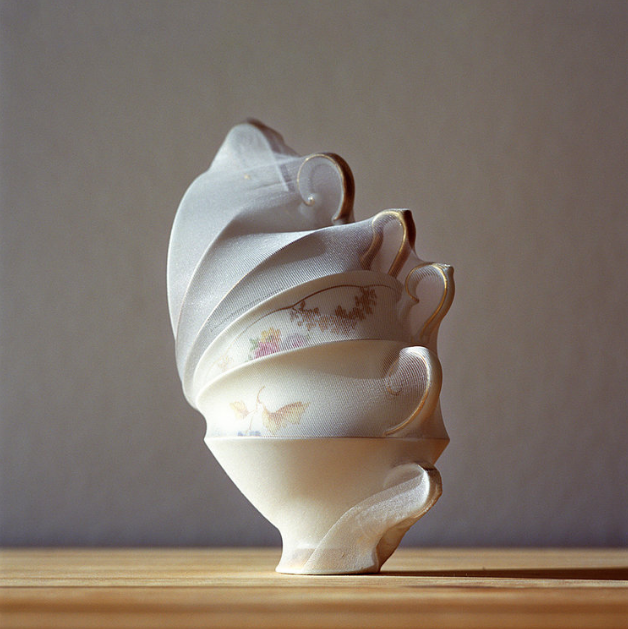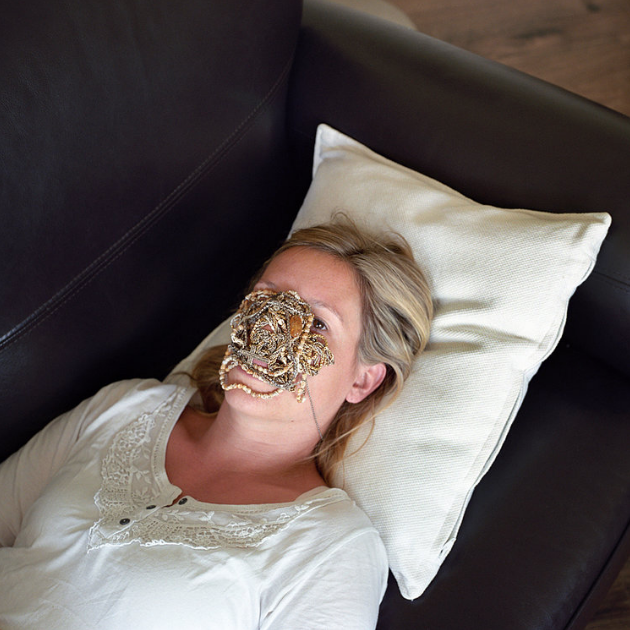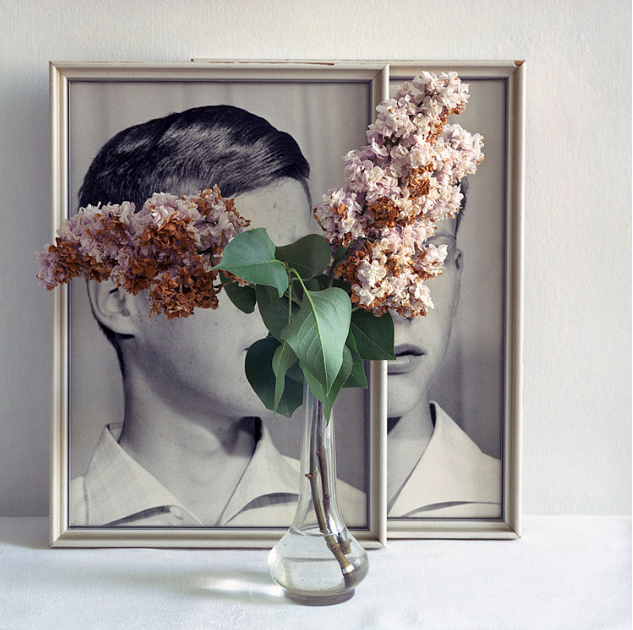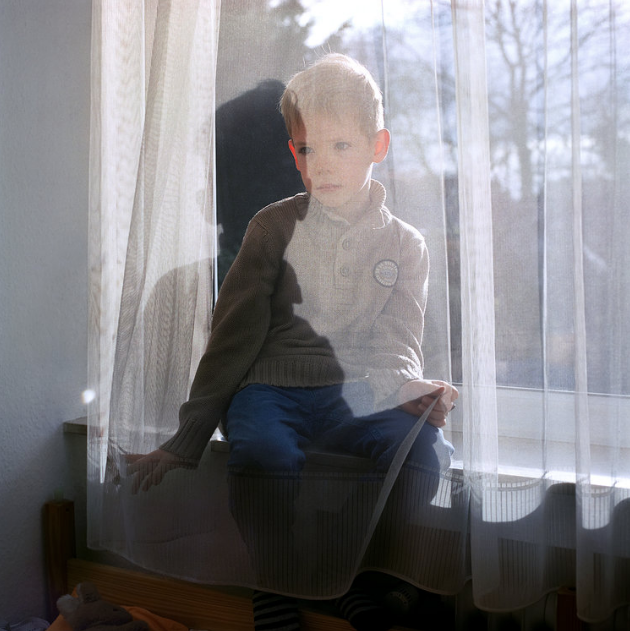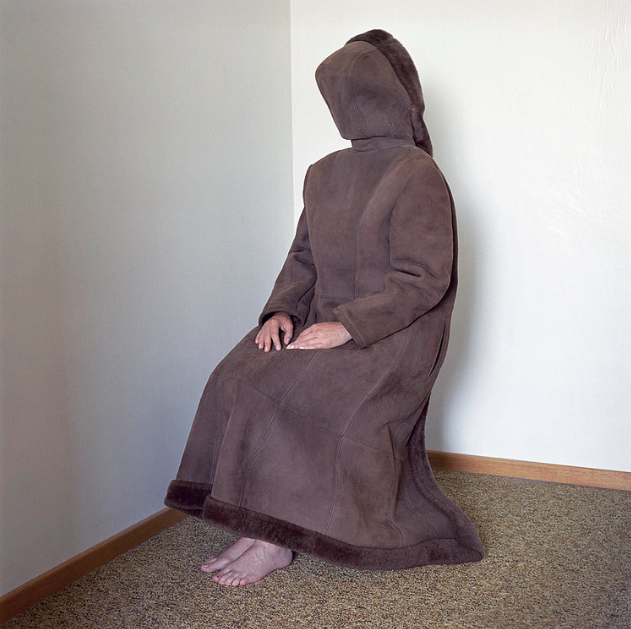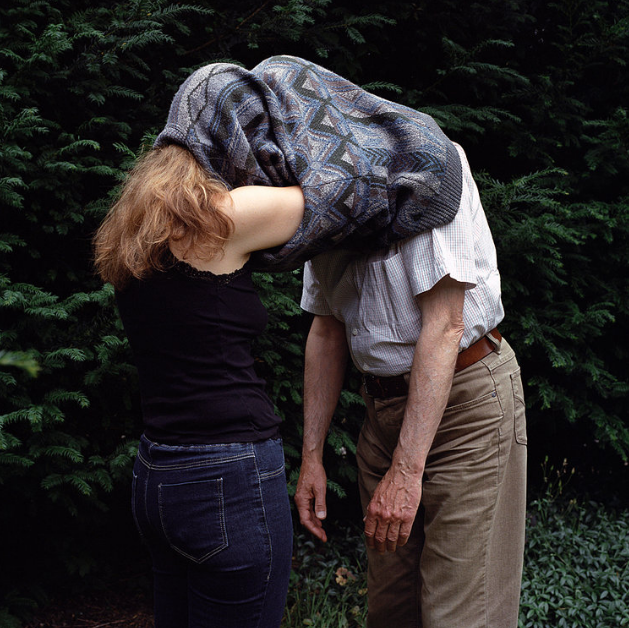Book Review: “abendlied” by birthe piontek
By Kelli Connell | January 15, 2020
Published by Gnomic Book in 2019
Text by Nich Hance McElroy
Hardcover / 112 pages / 70 photographs
I hold a book in my hands. The blue cloth reminds me of a cobalt sea reflecting the day’s last rays before they surrender to night. The cover is free of an image at its center, the embossed title Abendlied, shimmers gold, and floats, as if it could keep going, only held there by the edges of the book itself.
Inside, there is nothing straight-forward about Birthe Piontek’s photography. There is nothing straightforward about losing someone you love to dementia. For seven years Piontek created this work, together with the help of her mother, who battled the disease, and her family who was there to witness its effects and support one another.
Piontek’s still lifes are absurd (in the best way). Pantyhose engulf a stack of tea cups. A still life of grapes and river rocks make my teeth hurt. A rip in the mattress makes my chest cave with worry.
Her portraits are poignant puzzles. Her subjects act out staged scenarios that Piontek choreographs in front of her camera. Her sister lays unflinching: a stack of necklaces rests not on her chest but over her mouth and nose, making me want to gasp for air. Her nephew’s shadow lies on the translucent drapery in front of him. Instead of following him, his shadow takes the lead. Her two sisters sit on stairs leading to the second floor, as they are engulfed by the same sweater. One wears a sleeve on her left arm, the other on her right. They are held together, uncomfortably close. The sequins of the sweater, gold as a bright day, offer no warmth. Their gazes are low and distant. The images in this book haunt and hold a grip on those who see them.
Abendlied, or Evening Song, shares its name with a motet composed by Josef Rheinberger for a six-part a cappella choir. The metaphor for the choir is apt as Piontek directs her mother, two sisters, father, niece and nephew in staged scenes for her camera. The sisters become interchangeable. The father becomes a picture of his younger self. The children are shown with their heads turned, their features obscured. The disease affects them all, spinning its web, Piontek’s mother at the center of it all. The choir of them do their best to console. Separate in their grief they share the same space, as their pasts collide and rearrange. Theirs is a living grief.
Piontek’s images have no titles. The depth of feeling in her photographs cannot be easily articulated. A string of words woven together might rob her photographs of a multitude of feelings and gasps and grief that cannot be grounded by language. The only words appropriate, and so profoundly included in the book, are found tipped in its pages, a personal letter written by Nich Hance McElroy to Piontek:
Time is fluid and cracked, fucked up across the eras and objects, the 70’s, the war, the person you believe yourself to be…and your sisters and father and nieces and nephews are liquid and sloshing, aged, timeless, somehow rhyming with one another but never quite themselves.
In Piontek’s Abendlied we see a grief so beautiful it is painful. Her images, and their sequence and pacing in the book, sing.
Abendlied is available from Gnomic Book.
All images by Birthe Piontek.


